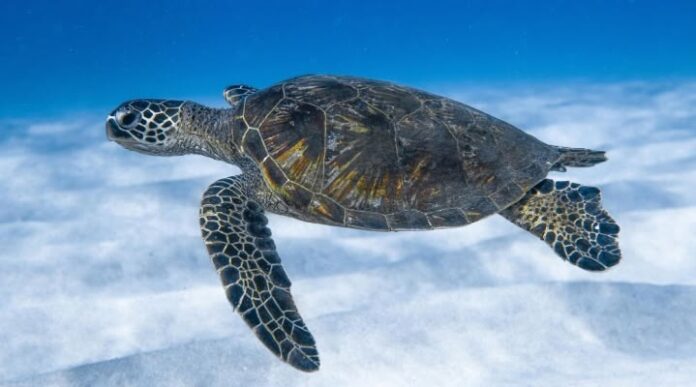In this activity, students play a game to learn about how plastic effects sea turtles, then educate others on how we can help.
Grades: 4-6
Learning Objectives:
- Recognize that plastic can impact animals in the environment
- Formulate suggestions of how to protect animals
During this activity, students will:
- Become aware of how plastic ends up in the environment
- Learn why animals eat it and how it affects them
- Reflect on ways to keep plastic out of the environment
Materials:
- Small squares of cardstock in 3 different colours (125 for a class of 25). One color represents a plastic bag, one a plastic balloon and one a jellyfish.
Instructions
- Ask students what they remember about wildlife conservation from the Earth Rangers assembly (for example, definition of conservation, the chemical DDT was hurting eagle eggs, and laws against it helped save eagles, Geraldo helping to protect sea turtle eggs). Explain that you are going to learn even more about how we can help sea turtle conservation.
In a playing area, mark off a space as home base and ask helpers to spread the cards widely spaced within the determined playing area. Explain the game:- Students are going to be hungry sea turtles, and the cards represent items they can eat.
- Demonstrate how to “swim” through the playing area (moving slowly and moving their arms as if swimming).
- Explain that once they have 5 items, it is time to swim to home base. The game will end when everyone has 5 items.
Wildlife conservation explained to kids
Wildlife conservation means protecting animals, plants, and their homes to keep nature safe and healthy.
- Play the game. When all have returned to home base, ask students to sort their cards by color. Reveal what the different colors represent. Ask if there is anyone who didn’t eat any plastic.
- Explain that sea turtles typically eat jellyfish, and items like plastic bags and balloons can often look like jellyfish floating in the water. The turtles may ingest these items, and they take up space in their stomach, making them feel full without providing any actual nutrients. It can also block their digestive system, which can be fatal because the turtle can no longer feed properly.
- Next, discuss ways we can keep plastic out of the ocean, such as shoreline clean ups, using less single use plastic, etc. Select a way to share your learning and allow students to educate those around them on how to take care of our natural environment.
-
Pick one or several messages such as:
- How single-use plastics can hurt animals and what we can do about it
- How we can help leatherback turtles
- Why we should never release balloons into the sky
-
Pick an Audience
- School community
- Family
- Political leaders
-
Pick a Medium
- 1-minute video
- Infomercial
- Skit
- Picture book
-
- Share your messages with us!

